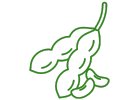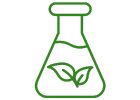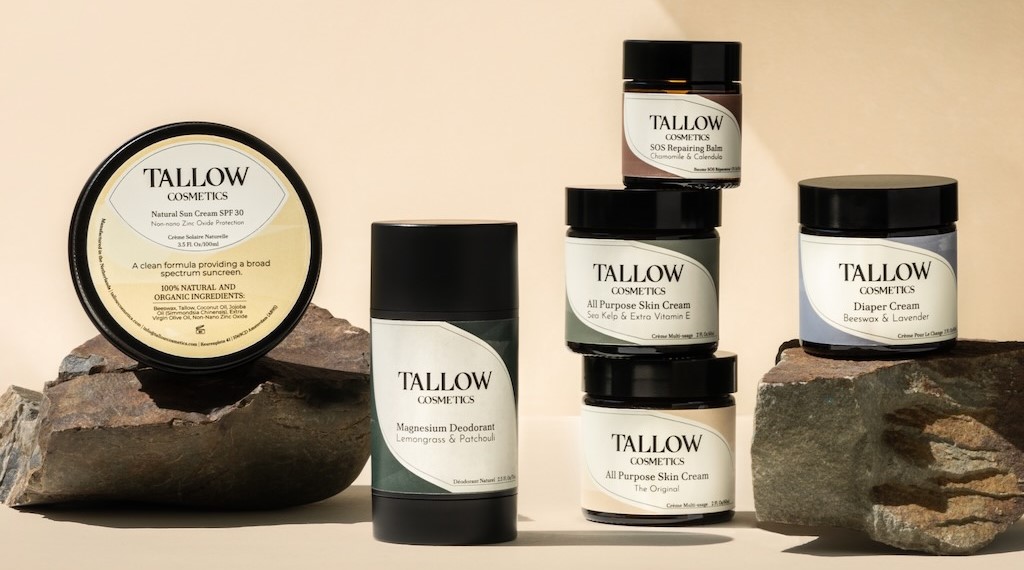The difference in quality
North American Herb & Spice uses wild-grown herbs that are hand-picked in pure and remote areas to produce their oil extracts.
The company works with local communities around the world to ensure sustainable sourcing of raw materials and prevent overharvesting of herbs in the countryside. This not only promotes ecological balance, but also provides economic support for these communities.
Products such as Oreganol P73, which contains wild oregano from high mountain areas, are produced without the use of pesticides and genetically modified plants. Each extract undergoes traditional steam distillation, ensuring that all the important nutrients and natural quality of the oils are preserved.
This careful approach ensures that all North American Herb & Spice products are high quality and pure, with no added chemicals or synthetic substances.
The difference in extraction
Traditional extraction methods and an emphasis on using only wild-grown sources ensure the high quality and sustainability of these oils. While many commercial brands use conventional extraction methods with chemicals and solvents, this brand uses traditional steam distillation and low temperature drying.
In this way, it preserves all the important nutrients and quality of the vegetable oils, without the use of harmful substances. In addition, products like OregaResp Gelcaps are highly concentrated, so even one capsule provides effects equivalent to several drops of oil, guaranteeing maximum effectiveness.
Difference in carrier oil
Unlike conventional oil extracts, North American Herb & Spice products use no alcohol. Instead, they are preserved in extra virgin olive oil to protect their purity and potency.
This method of preservation not only ensures the stability of the oils, but also provides other health benefits such as aiding digestion, skin and cardiovascular health.
In addition, the olive oil allows the safe and gentle use of these products for both internal and external application. This combination makes North American Herb & Spice oil extracts high quality, effective and suitable for everyday use.
You may notice that other brands boast of using MCT oil as a carrier oil, but you should know that MCT oil, while also stable and often used for its neutral taste and quick absorption, does not have the same amount of antioxidants as extra virgin olive oil.
This can affect the long-term stability and effectiveness of the essential oils stored in it. That's why North American Herb & Spice prefers to preserve in high quality extra virgin olive oil, which better protects and preserves the quality of the natural compounds in their products.
The difference in the origin of the raw materials
Most brands source herbs for dietary supplements from suppliers around the world, often from cultivated sources.
China is one of the world's major suppliers of herbal raw materials for the production of dietary supplements. Many raw materials, including traditional Chinese herbs, are grown on large farms or plantations, often using pesticides and industrial methods. This can affect their purity and quality.
In addition to China, India, Indonesia, Egypt and, in some cases, Latin American countries such as Peru and Brazil are also major suppliers of herbal raw materials for the production of dietary supplements.
These areas often produce herbs such as ashwagandha, turmeric, ginger and other traditional medicinal plants. Unlike the controlled environments in Europe and North America, these countries often use industrial growing methods that may involve the use of pesticides and less stringent regulatory standards, affecting the quality of raw materials
While most brands use cultivated plants that may have been affected by pesticides or genetic modification, North American Herb & Spice, on the other hand, sources herbs exclusively from wild-grown sources that are hand-picked by local communities in remote and pure natural areas.
This approach not only ensures high quality raw materials, but also promotes sustainability and the protection of natural ecosystems, which many commercial brands cannot guarantee.
The importance of organic certification and 3rd party inspections
Having an organic certification is very important for dietary supplement manufacturers, as these certifications ensure that products have been produced in accordance with strict organic standards.
Certifications guarantee that the raw materials have been grown without the use of synthetic pesticides, fertilizers and genetically modified organisms (GMOs). Obtaining certification involves regular inspections, rigorous record review and testing to ensure compliance with all requirements.
These controls include, for example, the absence of banned substances, the use of organic inputs and the protection of ecological balance, which also contributes to environmental protection.
How the quality of raw materials is controlled:
-
Raw material testing: raw materials are tested for contaminants such as pesticides, heavy metals and microorganisms. This step ensures that the raw materials meet strict purity standards.
-
Certification: certificates such as BIO, USDA Organic or GMP are used to certify that the ingredients have been grown and processed according to organic standards.
-
Laboratory analysis: the identity, strength and purity of the final product are tested to verify that it contains the declared amount of active ingredients.
-
Production supervision: Manufacturing processes must meet Good Manufacturing Practice (GMP) standards, ensuring consistent product quality and safety.


.jpg)

































































